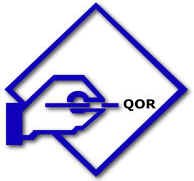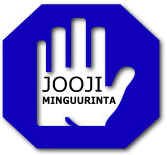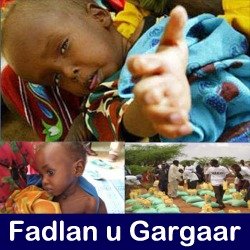 By Abdirahman Omar Osman (Eng. Yarisow)
By Abdirahman Omar Osman (Eng. Yarisow)
engabdirahman@gmail.com, ayarisow@opm.gov.so
In response to Professor Abdi Ismail Samatar’s article entitled “UN threatens the Somali democratic movement” which he raised a number of questions including what is a Roadmap? And who is Spoiler?
(Read Prof. Samatar Article from Aljazeera Opinion’s page)
https://somalitalk.com/2012/05/18/prof-samatar/
While the TFG welcomes constructive criticism and encourages discussions and debate on the proposed new political dispensation, blaming the International Community for our own mistakes serves no purpose. We must accept responsibility for our actions and be creative in finding solutions, recognising that these ultimately lie within us. It is time to seriously debate and discuss issues that matter to all the Somali people.
In this regard, it is instructive to note that it was the TFG who originally issued statement on the issue of spoilers and we are very grateful for the support from the International Community, such as UN, AU, IGAD and the US.
I am sure most of Somalis are fully aware of what the Roadmap is and who the spoilers are but, for the benefit of the readers, please allow me to respond to the questions posed by the professor and to shed light on the issues he has raised.
The Roadmap
The Roadmap in question is the plan adopted in Mogadishu in September 2011 by representatives of various political entities within Somalia on how to move the country in the direction of peace, stability, and democratic governance. It lays the path to the inauguration of a new political dispensation and to ending the 12 year transition process.
The plan has four components or sets of priorities, namely: security; political outreach and reconciliation; the adoption of a provisional constitution; and good governance. Indeed, the very absence of such a comprehensive, detailed and strategic plan is one of the reasons that Somali politics have been held hostage to a seemingly endless series of transitional governments. It is plain that such a society cannot plan for a economically, politically and socially sustainable future.
Prime Minister Dr. Abdiweli Mohamed Ali accurately described the situation in his policy statement on the adoption of the Roadmap. “Since 2000, successive transitional governments have been presented with shopping lists of deliverables numbering close to 20, from security, peace, good governance, DDR, health care provision, the building of civil administrations on and on. The list was too long, too unfocused and too unrealistic for it to be built into workable benchmarks. Our strategy in consultation with other stakeholders was to streamline the deliverables into manageable and realistic goals and encapsulate them with complimentary policy directions matched by clear timelines through a concisely mapped out Road Map.’’
This therefore is the true significance of the Roadmap. It prioritizes all the many seemingly incoherent policy goals set out by previous administrations into key priority benchmarks that, taken together, will deliver a new political order.
As the Prime Minister stated: “Benchmarks 1, 3 and 4 are tasks that shall be engaged in for many years – we will continue to improve the security of the nation, engage in political outreach and reconciliation; and we will always work to improve the good governance of public institutions.
Benchmark 2 serves two purposes. One, the constitution making process will have significant legal and political arrangements and instruments designed to assist in ending the transition. Two, the constitution making process will lead to a provisional federal constitution which through dialogue and constitutional conferences will serve as a compliment to the reconciliations efforts of the TFG and our partners. Our key priorities are finalizing the draft constitution in order to provisionally ratify through a Constituent Assembly (CA) and to select members of the next parliament by end of June 2012.
Completing our constitutional process and convening our new parliament is how we will reach our new political dispensation and end the transition. Therefore, we must place even more emphasis and effort on this area – my government has been prioritizing these tasks.”
Contrary to the Professor’s assertion that Somalis “find the constitution anti-Somali, and view the entire Roadmap which is supposed to lead to the post-transition political order utterly illegitimate,” the National Consultative meeting held in Mogadishu on 4—6 September 2011 was historically the first time Somali stakeholders came together inside Somalia to discuss issues of importance to Somalia. This is proof of Somali leadership, ownership and unity from the very start.
Professor Samatar’s critique also ignores the fact that the Roadmap was endorsed by Somali civil society organisations in a conference in Mogadishu held from 26 to 28 November 2011 and in the Garowe II conference. These groups continue to contribute to the process.
Even following its adoption by the Constituent Assembly, the constitution will be a provisional one pending its adoption by the people in a referendum. However, it will provide the legal framework for the next administration to arrange for one as well as continue to consolidate the progress we have made in the peace process.
The Spoilers
The Transitional Federal Government has also been clear on who we consider to be spoilers. They are those attempting to obstruct the peace process and to put the prospect of future stability in Somalia into jeopardy. A spoiler is anyone who uses violence to perpetuate the status quo of statelessness or to return the country to the era of warlordism. However, anyone who engages in peaceful political activities, and who freely expresses his/her views, cannot be considered a spoiler.
People have every right to raise their concerns with the constitution provided that they are not using violence or mobilizing clans for their personal gains. The government invites the people to debate on the constitution; the government wants and seeks consultations and constructive criticism. After all, the constitution ultimately belongs to the people of Somalia and there is still scope in the current draft for any necessary amendments, corrections or alterations which would be of benefit to Somali society.
The urgent issues that we now need to tackle are the following:
- Ending the transition by August 2012 so we will once again have a permanent government and can rejoin the community of nations. This cannot be achieved without an agreed constitution. So how can we use the remaining time constructively to ensure that the people have a say in making the necessary amendments to the constitution?
- How do we differentiate genuine debates / discussions and those warlords who seek to frustrate the entire enterprise by mobilizing clan surrogates to defend their personal interests?
- How can we bring about a new political dispensation that can bring a parliament that is leaner, competent, more legitimate and accountable to its people?
Every Somali should have a say in how these issues are addressed and, with patience, I believe every Somali will. The peace process, on which we have laboured for so long, is now bearing fruit. Mogadishu is now flourishing and showing a real sense of peace and hope. Never before have I seen the traffic jams of today on Makka Al-Mukarama Road. Businesses are reopening, buildings are going up everywhere, and the sense of hope within the Somali people is palpable. We continue to make tremendous progress in attaining the targets set out in the Roadmap. There is light at the end of the tunnel. We now have the opportunity to pool our efforts and to get Somalia out of the failed states list for once and all. Should we fail to do this, then blame shall be upon us — and only us.
I hope the above debates add to the discussions and I look forward to receiving your constructive feedback.
_____________________________________________________________
Mr Abdirahman Omar Osman (Eng. Yarisow) is the Senior Advisor to the Prime Minister of Somalia & Spokesperson of the Somali Government. He held senior government positions including Minister of Treasury, acting Minister of Finance and Minister of Information. He is a long time social activist, political analyst and former Community Leader in UK, where he worked in Local Government for 10 years.




































I am not somali but I feel sorry when ”Eng” Yarisow speaking out , the end of 2010 there was fun to somali 2000 teachers for 5 years but Eng Yarisow denied this and he preferred only his trips fun I spoke to him by phone and he emailed as well,
I would like to say to ”Eng” Yarisow think about your day after (Kiyama)
Samatar is well-read professor and though I disagree with him on many issues, he knows what he means.
Yarisow and his likes are there in Mogadishu to make money out of the suffering of Somali people.He never fails to amuse me with with good titles such “the senior advisor”. What the hell does advise to the prime minister?
This is what I call insanity and idiocy.
yarisow: we cannot deny the facts on the ground.what is going in somalia is ethno sectarian competition for the power and the resource.so you cannot impose draft constitution unless you attend this worsening issues. yesterday you were mobilizing somali community in london to protest against Eithopian Invasion and know you are advocating ethopian insanity. Shame on you yarisow. samatar is known somali academic who devoted somali to become the global government system not to become member of the 7th zone of eithopian.
إذا أتتك مذمتي من ناقص……فهي الشهادة لي بأنـي كامل
Yarisow still you are in blue ocean Restaurant in London sorry .
Yarisow likes to reply everything without concrete knowledge! Prof Abdi Samatar is well-known Somali Scholar and knows the facts in the ground and the conspiracy of the international community. That is what his studies and researches is about.
Yarisow calls himself Engineer and talks if someone with knowledge points the fact out there. I wonder if he’s specialized in finance, law, international relation, political science, jourislist, public health and so.
Professor Samatar is well-meaning somali scholars and he has no dark histroy. Besides he always tells to the international community the facts exist in Somalia with no fear and also seeks the justice, freedom and democracy in Somalia.